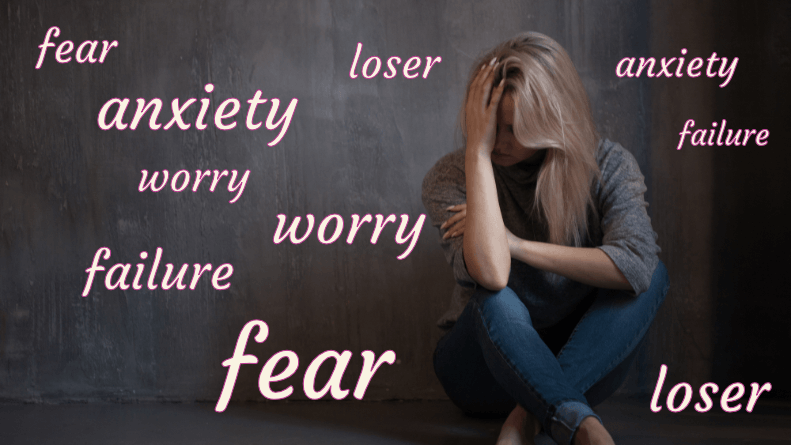Summary
“Why change?” is the wrong question because we all change constantly. Instead, embrace incremental change by focusing on good habits.
A few years ago, I hit a wall. I finished my postgraduate degree. The world of opportunities stretched out in front of me, but I couldn’t decide what to do next. Get a job in academia as so many of my fellow graduates aspired to? Find work in a different industry? Which one? Teach? What? Learn a completely new skill? Again, which one?
Opportunity loomed.
Checking out from change
I opted out. No more decisions. The previous fifteen years had been pretty eventful. I’d lived in three different countries, got 3 university degrees, had gazillion jobs and travelled around Australia, New Zealand and Scotland. I was tired.
No more rushing. No more writing thousands of words a day because I had to work a part-time job for minimum wage tomorrow. Time for a break. Heck, I deserved a break. No more change for me, thank you very much.
Boring? Yes, please! Routine here I come. I got a job I could do from home with very little effort and even less passion. I relaxed. Every day became the same.

How we imagine change
Change is scary because we misunderstand it. We often only count or even notice big events that overthrow life as we know it, like moving to a new city or even a different country, changing industries or at least companies. So when we want to make a deliberate change, we assume it has to be big.
Want to become fit? Sign up for the gym and plan to go at least six times a week. Want to lose weight? Reduce calories by half and skip meals while you’re at it. Don’t like your job? Find something completely different immediately.
Big stuff. Important stuff. Scary stuff.
I did the same. Big goals could only be achieved through big changes. Small efforts didn’t count. So when I chose stagnation, I put my goals on hold. I was going to stay the same for a while.
Or so I thought.
The Hump
One otherwise uneventful day, I caught a glimpse of my profile in the mirror. I had a hump. Literally! My shoulders were rounded, and I had trouble sitting and standing up straight. Rounded shoulders move our head out of alignment, which puts stress on our neck. Our bodies cope by depositing fat at the back of our necks to protect our spine. The result: a hump.
This was definitely a big change, yet I hadn’t noticed a thing! What else was different about me? Did my knees really just hurt because I was getting older? What about my breath. Surely, I should not run out of breath every time I climbed the stairs. And since when was I scared of going outside?
Anxiety had always been a part of my life, but now I had panic attacks. My mind was running through worry loops or conjuring up nightmarish visions to freak me out. The thoughts racing through my head were unhelpful lies. Where had the lies come from and when had they turned into constant background chatter?
My body had changed. So had my mind. The dominant emotion in my life was suddenly fear. All of this change, and I hadn’t noticed a thing.

Change is constant
From the moment we are born, we change. Every single second (even nanosecond) something in our bodies moves and shifts. Food is processed, electric impulses speed along our nerve cells and chemical reactions take place. Life is change. As long as we live, change is unavoidable and unstoppable. It’s also mostly tiny.
Every time we take an action, we change just a bit, and that change makes it more likely that we’ll repeat the action. If you go for a walk, you train the muscles in your legs, even develop more of them. Your mood improves, and you feel more relaxed. The next time you want to go for a walk, you remember your good mood. Taking the first step is easier. Repeat the action regularly and you have got yourself a habit.
The dark side of habits
Every action, every thought and every emotion counts because, if you repeat them often enough, they turn into habits. And habits change our lives.
Each time I sat down to read or binge watch for hours on end, my body changed a tiny bit. My shoulders rounded, the muscles in my chest tightened up, the ones in my back weakened. My head moved forward, and my body deposited fat at the base of my neck to protect my spine. I sat a lot, not realising how truly damaging sitting is for us.
My posture worsened, which affected my emotions. My emotions shaped my thoughts, which defined my actions.
I thought I had escaped change simply by refusing to make big decisions, but every action I took counted.
“[…] you must remember that all the mundane, repetitive things you do each day are leading somewhere.”
My routine led me straight to a hump and mental health problems. Worry and anxious thoughts became daily habits. Slowly but surely.
When I realised all this, I felt overwhelmed. How was I ever going to get myself out of this abyss? I’d somehow gotten to the point when even a phone call could send me into a foetal position. Big change, even big goals seemed completely out of reach.
Then I had an epiphany. If tiny changes had gotten me into such a terrible state, why not use the same type of change to get out of it?
Taking charge of change
Over time, tiny actions turn into tiny habits which you can grow until they compound into big changes.
I started with a Yoga challenge: ten minutes every day. No need to leave the house. Then came 5 minutes of meditation here, 3 minutes of gratitude journaling there. A sprinkle of stretches throughout the day.

I straightened up. My mood went from neutral to good. Even though I’m older now, my knee no longer hurts. My breath flows freely. Self-awareness has become a daily habit. I have energy and can focus on work that matters to me. My big goals are back and I’m already on the way.
Big changes are scary but small changes are manageable. Try it. Stretch your body. Move in your chair or stand up. Add a few salad leaves to your sandwich. Eat a piece of fruit today. Look out the window or at a picture on the wall for a minute. Relax your eyes. Breathe.
You just changed a tiny bit because every action counts. Repeat the actions that make you feel a tiny bit better again tomorrow. And again. You don’t have to make big decisions to change your life. Simply take charge of your change. It’s happening anyway. So why not deliberately change into the direction you actually want to go? Every day, bit by bit.
